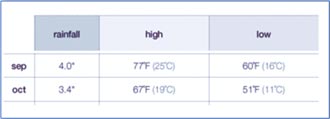ABOUT NYC
- ABOUT NEW YORK CITY
- NYC TIME ZONE
- WEATHER/CLIMATE
- CURRENCY
- LOCAL LAWS
- USEFUL PHONE NUMBERS
- TIPPING
- SALES TAX
- SAFETY
New York City geography is composed of five boroughs. While Manhattan and Staten Island are islands, Brooklyn and Queens are geographically part of Long Island, and the Bronx is attached to the US mainland. The islands are linked by bridges, tunnels and ferries. Check here for helpful NYC maps and guides.
The Manhattan Island is roughly 13.4 miles long and about 2.3 miles wide at its widest. Except at its northern and southern tips, the borough's avenues run roughly north and south, and streets run east and west. One-way thoroughfares are common, with traffic moving east on even-numbered streets and west on odd-numbered streets. Fifth Avenue divides the island into east and west sides (for example, locations on 57th Street west of Fifth Avenue are designated "W. 57th St.,” and east of Fifth Avenue, they're "E. 57th St.”). As you move farther east or west from Fifth Avenue, street addresses increase, usually in increments of 100 from one block to the next. For north-south avenues, 20 blocks equals a mile, and the street numbers increase as you go uptown. Blocks can be a useful measure of distance, but keep in mind your direction: walking uptown from 1st Street to 6th Street is about a quarter of a mile, but walking the same number of blocks crosstown, from First Avenue to Sixth Avenue, is approximately a mile.
New York City is on Eastern Standard Time (Greenwich mean time minus four hours during daylight saving time, from about mid-March into early November, and minus five hours the rest of the year).
New York City weather can vary from day to day, and even hour to hour, but a guide to the seasons can help you plan your wardrobe. To see current weather conditions, view details on accuweather.com
More generally, spring in New York City brings budding flowers, light winds and rain, with the season's temperatures ranging from cool to very warm. Summer is characterized by bright, sunny, hot days and later sunsets, sometimes accompanied by cool breezes in areas near the water. The fall season is chilly and crisp, so it's wise to wear layers. The winter months are cold and snowy with less daylight, though the sky is often sunny and clear. Below is a chart with average temperatures and rainfall by month.

In New York City and throughout the United States, the dollar is the standard currency. This converter allows you to determine the value of other currencies compared with the dollar.
If you're headed out for a night on the town, you should know that the drinking age in NYC—and throughout the United States—is 21, and smoking is banned in public places throughout the City, including bars, restaurants, subways and taxis, and public parks and beaches. Cigar smoking is permitted at cigar bars. In NYC, only those who are 21 or older can purchase cigarettes and other tobacco products and electronic cigarettes. Laws passed in recent years have made medical and recreational use of marijuana legal in the City (and state); however, licensed retail sales of it have not begun and are not expected to until early 2023.
Here are some important phone numbers to keep handy during your NYC visit.Here are some important phone numbers to keep handy during your NYC visit.
- Emergencies (police, fire or ambulance): 911
- NYC government agencies and any questions or requests about City services (nonemergency): 311 or 212-NEW-YORK (639-9675)
- Directory assistance: 411
- Printed NYC literature: 800-NYC-VISIT (692-84748) or 212-397-8222 (the latter is for international callers only), Mon.-Fri., 7:30am-5:30pm CT. You can also visit nycgo.com to instantly download or order New York City guides and maps.
Let's face it: it's not always fun to tack a few extra bucks of your hard-earned money onto a bill. But since New Yorkers in the service industries (hotels, restaurants and transportation) usually have gratuity factored into their wages, tips are expected and greatly appreciated. You don't have to go overboard, but be sure to show the love for great New York City service. Note that there are an increasing number of restaurants these days implementing a no-tipping policy—they either add on a service or administrative charge or they have hiked their prices, and they use the money to better pay their workers (the policy will typically be indicated on the menu or bill). In lieu of that, here's how much you should tip:
- Hotel doorman: $1 for hailing a cab.
- Porters and bellhops: $1-$2 per bag.
- Housekeeping: $1-$2 per day of your visit, or as much as $5 per day.
- Waitstaff and bartenders: 15-20 percent of total bill. Bartenders typically expect at least a $1 tip for every beverage they serve you. Later on, when the bar gets crowded, you'll be glad that the mixologist remembers you!
- Taxi drivers: 15-20 percent of total fare.
- Hairdressers: 15-20 percent of total service cost.
Tips for other service personnel, such as theater ushers, tour guides and coat-check staff, are always appreciated.
Buyer beware: while the price tag may say one thing, prices marked typically don't include tax. The sales tax on most goods and services in New York City is 8.875 percent. But there are a few exceptions:
There is no sales tax on many food items purchased at grocery stores (heated or otherwise prepared foods are an exception), or on prescription drugs.
And there is no sales tax on clothing or footwear under $110.
For more information, visit the NYC Department of Finance website.
New York is America's safest large city, but visitors should still use common sense to protect themselves and their property. Be aware of your surroundings, and make sure to always use licensed, reputable businesses for any services you need. For example, don't hail livery cabs (as opposed to taxis) at the airport, and don't rent bikes from companies that seem suspicious. If you're not sure where to find legitimate businesses, the listings at nycgo.com are a good place to start, as are those published by the Better Business Bureau. Your hotel concierge should be able to answer questions on this topic and will be helpful if you need more information about neighborhoods in the five boroughs. Another useful resource is 311, the City's official government services and information hotline. For more information about safety, read our tips for visitors.
